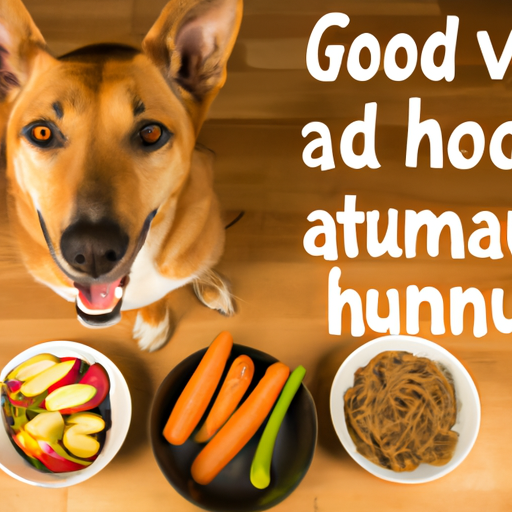As a pet parent, you must have often wondered – “What human foods can I safely share with my dog?” It’s only natural, given how our furry friends seem to find every morsel we eat fascinating. In this comprehensive guide, we’ll explore eight categories of human foods that are not just safe but also beneficial for dogs.
1. Protein-Rich Foods
Dogs are carnivores by nature, but not all protein sources are created equal. Here are some high-quality, dog-friendly proteins:
- Chicken: This lean meat is a great source of amino acids, which help build strong muscles.
- Fish: Salmon and tuna are packed with omega-3 fatty acids, promoting skin and coat health.
- Eggs: A great source of digestible protein, riboflavin, and selenium.
Remember to cook these proteins thoroughly before serving to eliminate any harmful bacteria.
2. Fruits and Vegetables
Fruits and vegetables can provide dogs with essential nutrients and fiber. Here are a few examples:
- Carrots: These are low in calories and high in fiber and vitamins.
- Blueberries: These are antioxidant-rich fruits beneficial for a dog’s health.
- Pumpkin: It’s an excellent source of fiber and vitamin A.
Ensure to remove any seeds and pits before serving, as they can be choking hazards.
3. Dairy Products
While some dogs are lactose intolerant, others can enjoy dairy in moderation. Some good choices include:
- Yogurt: It’s high in protein and calcium. Choose plain varieties to avoid sugar and artificial sweeteners.
- Cheese: Small amounts can be a great treat. Opt for low or reduced-fat varieties.
4. Grains
Whole grains can be a good source of energy for dogs. Some examples are:
- Brown rice: It’s packed with natural fibers and promotes digestive health.
- Quinoa: It’s protein-rich and contains all nine essential amino acids.
5. Legumes
Legumes are nutrient-dense and can provide protein, fiber, and several important minerals. Some dog-friendly legumes include:
- Green beans: They’re a good source of vitamins C, K, and manganese.
- Chickpeas: They’re rich in protein and fiber.
6. Nuts and Seeds
Some nuts and seeds can provide healthy fats and proteins to dogs. Some suitable options:
- Peanuts: They’re rich in heart-healthy fats and protein.
- Flaxseeds: They’re a good source of omega-3 fatty acids.
Remember, nuts should be unsalted and served in moderation due to high fat content.
7. Herbs and Spices
Certain herbs and spices can provide health benefits to dogs:
- Turmeric: It’s known for its anti-inflammatory properties.
- Cinnamon: It can help regulate blood sugar and reduce inflammation.
8. Healthy Oils
Some oils can enhance a dog’s diet:
- Fish oil: It’s an excellent source of omega-3 fatty acids.
- Coconut oil: It’s known for its skin and coat benefits.
Always introduce new foods gradually and watch for any adverse reactions.
| Food Category | Examples |
|---|---|
| Proteins | Chicken, Fish, Eggs |
| Fruits & Vegetables | Carrots, Blueberries, Pumpkin |
| Dairy | Yogurt, Cheese |
| Grains | Brown Rice, Quinoa |
| Legumes | Green Beans, Chickpeas |
| Nuts & Seeds | Peanuts, Flaxseeds |
| Herbs & Spices | Turmeric, Cinnamon |
| Healthy Oils | Fish Oil, Coconut Oil |
Frequently Asked Questions
Can Dogs Eat All Fruits and Vegetables?
No, some fruits and vegetables like grapes, onions, and garlic are toxic to dogs.
How Much Human Food Can I Give My Dog?
As a general rule, human food should make up no more than 10% of a dog’s diet.
Can Dogs Be Allergic to Human Foods?
Yes, dogs can have food allergies, just like humans. Always introduce new foods one at a time and monitor for any adverse reactions.
Are There Any Spices That Are Harmful to Dogs?
Yes, some spices like nutmeg and salt can be harmful to dogs. Always research before introducing new spices.
This guide is a stepping stone to exploring the world of human foods for your furry friend. Always consult with a vet before making significant changes to your dog’s diet. Remember, moderation is key. Happy feeding!



